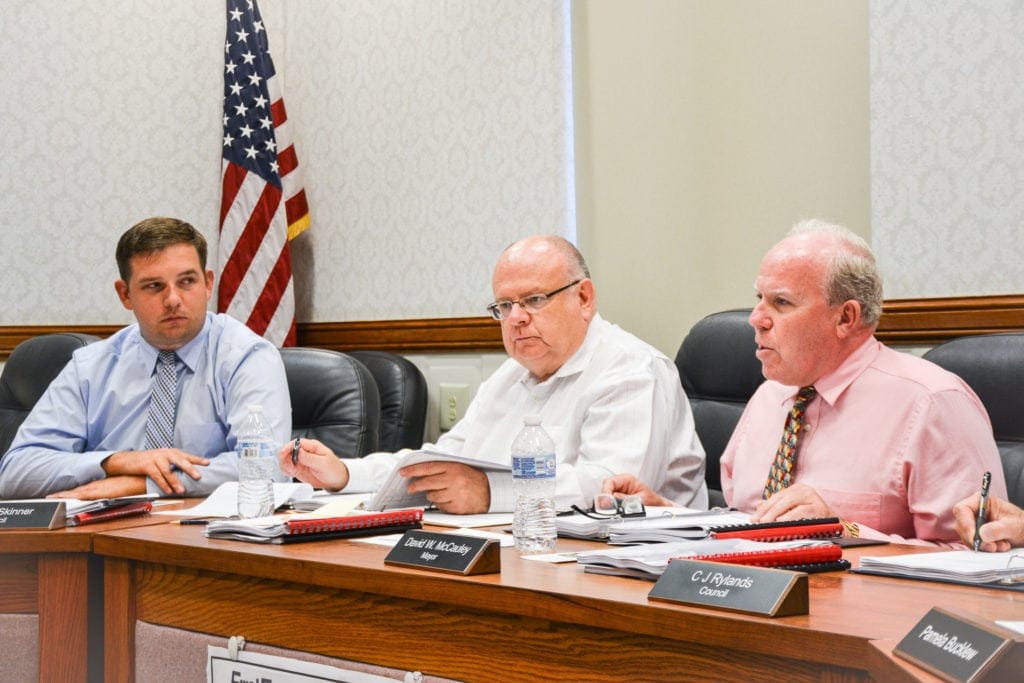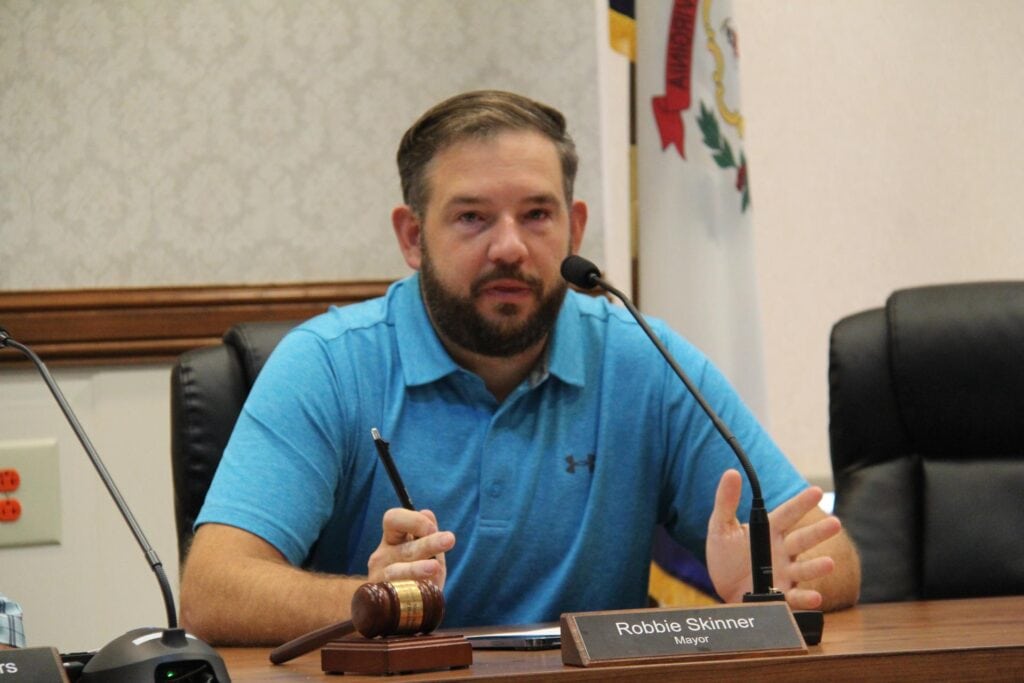BUCKHANNON – Here’s the bottom line: The City of Buckhannon can no longer foot the entire bill for the cost of employee health insurance.
As a result, some future employees will be asked to pitch in to cover pricey monthly premiums.
Mayor David McCauley said as much at city council’s Thursday meeting as he briefed council members on a revised draft of Ordinance 437. The ordinance’s purpose is to establish new cost-saving guidelines governing the city-sponsored medical and prescription drug benefit program.
To cope with the ballooning cost of employee health insurance, the city voted earlier this year to move from fully funded coverage with Loudin Insurance Agency in Buckhannon to a partially self-funded plan through Tawney Insurance and Consulting in Lewisburg.
The guidelines contained in the new ordinance are also designed to cut costs in the future by asking future employees – i.e. those hired on or after Oct. 1, 2019 – to cover a portion of their monthly insurance premium.
The law, if passed, would also effectuate a spousal carve-out, meaning if the spouse of a full-time employee hired after the Oct. 1 date is able to obtain health insurance coverage through her or his own employer, she or he is required to do so instead of simply opting to be covered under the city’s plan.
As McCauley emphasized, the premium contribution and the spousal carve-out will not apply to full-time employees hired before the Oct. 1, 2019 deadline; those employees will be “grandfathered” in, meaning they won’t see alterations in health insurance coverage and benefits.
Council will not vote on the ordinance until its next meeting on Aug. 1, but McCauley highlighted substantive changes recently discussed by the city’s insurance committee, which includes himself, councilman Robbie Skinner, councilman David Thomas and city finance and administrative director Amberle Jenkins.
“The insurance committee is recommending unanimously to the council that we adopt an ordinance that would require, beginning Oct. 1, 2019, that city employees who have spouses, single children without a spouse or would be participating in our family plan, that they start paying a set amount per month toward the total premium cost,” the mayor said.
Future full-time employees’ contributions are laid out in the ordinance as follows, McCauley said:
- A single employee with no children and no spouse will not have to pay any portion of her or his monthly premium
- An employee who is not married but has a child will be required to pay $100 per month toward the monthly premium cost
- An employee who is married but does not have children would pay $125 to have spousal coverage for a “qualifying spouse” (a spouse who either doesn’t work or isn’t able to secure health insurance coverage through his or her own employer)
“This is beginning Oct. 1 for new hires only,” McCauley said, “and lastly, if an employee was married and had children, the employee would pay $150 per month toward the total premium cost.”
“To give you an idea as to what the total family premium cost is right now, it’s about $1,500 per month, which means that the city is incurring the $18,000 per year cost for our full-time employees with the family plan,” McCauley added. “So, to require a $150 per month allocation by such an employee, we would be defraying about $1,800 of that $18,000.
“In other words, they’re paying about 10 percent on the family plan. We think that that is a fair next step. Again, all current staff members – as long as they maintain their current full-time employment with the city – are grandfathered. They would not participate in insurance premiums.”
The mayor said three or four positions may need to be filled after Oct. 1.
“Those new employees would come under this new plan if that’s what we approve on the first of two readings at our Aug. 1 meeting,” he said.
McCauley asked Skinner, Thomas and Jenkins if they had any remarks to add.
“It was a good meeting,” Thomas replied. “We discussed a lot of things.”
McCauley reiterated that health care costs must be contained.
“We just can’t continue to exponentially increase the cost of insurance or we’ll price ourselves out of existence,” he said.
Should the law pass on first reading Aug. 1, second reading would be slated for Aug. 15 and passage on Aug. 15 would result in an Oct. 1, 2019 effective date.
In other business, McCauley appointed a technology committee to review a proposal from Micrologic to provide wireless intranet to the city free of charge and install several webcams in downtown Buckhannon, a prospect discussed at council’s July 2 meeting.
McCauley proposed the following individuals serve on the committee: city engineer Jay Hollen, public works director Jerry Arnold, finance and administrative director Amberle Jenkins, Phil Loftis, Rich Clemens, Seth Hoffman, Duwane Squires and city recorder Randy Sanders.
Councilman CJ Rylands made a motion to approve the committee makeup, which was seconded by councilwoman Pam Bucklew prior to passing unanimously.
“Our new technology committee will report back on the Micrologic proposal and some other things,” McCauley said.













